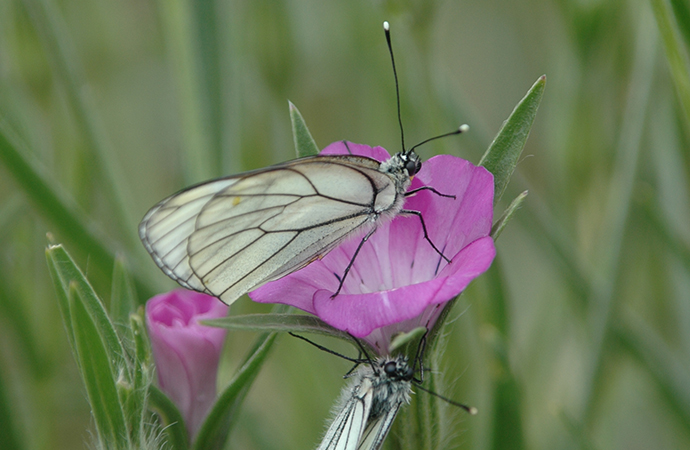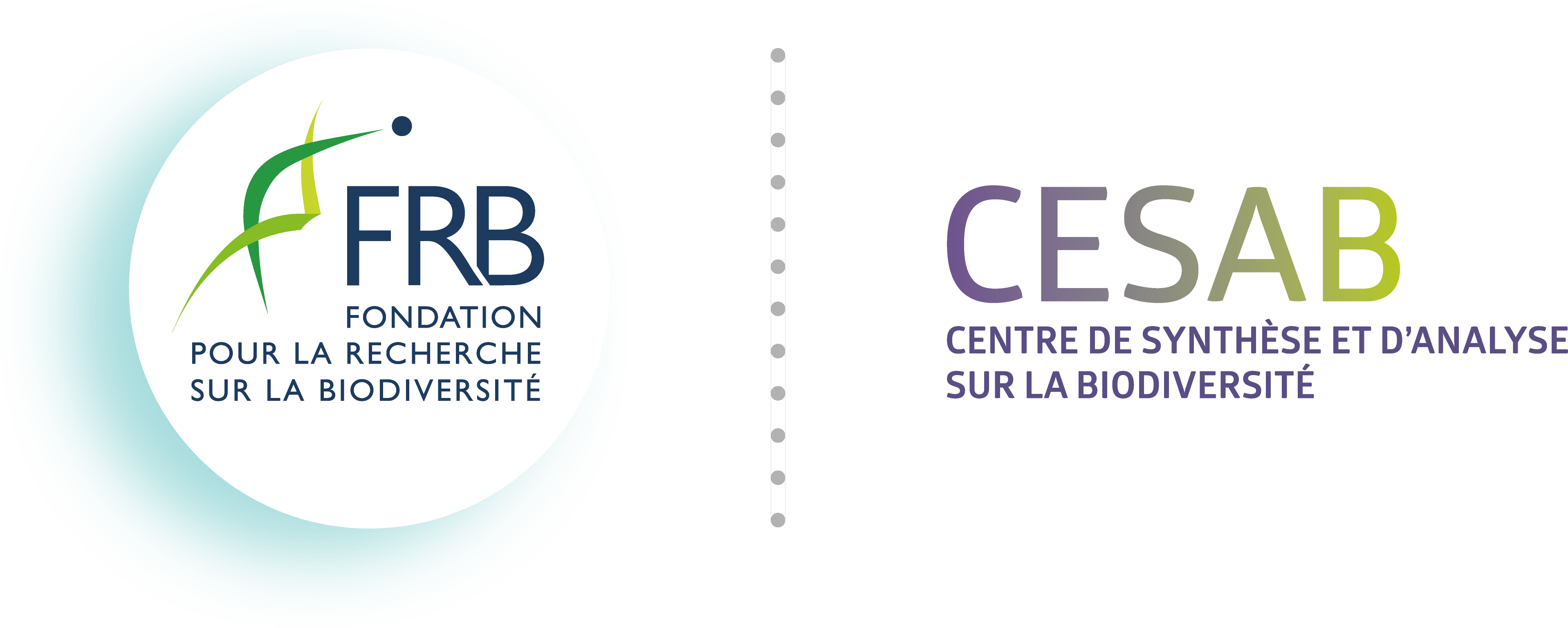FELLOW
Weeds as crop fellows? Spatio-temporal dynamics of weed communities and their role on biodiversity-mediated ecosystem services along a gradient of human pressures
 La nielle des blés (Agrostemma githago), messicole emblématique, visitée par deux gazés (Aporia crataegi) ©Guillaume Fried (Anses), le 08/06/2011 sur le Causse Méjean (Lozère, France).
La nielle des blés (Agrostemma githago), messicole emblématique, visitée par deux gazés (Aporia crataegi) ©Guillaume Fried (Anses), le 08/06/2011 sur le Causse Méjean (Lozère, France). The FELLOW project aims to quantify the relative importance of different factors on the functional properties of the flora and to evaluate its biodiversity value for providing resources for pollinators, insects, birds and other organisms
Long neglected by the agricultural world, which sees them primarily as weeds, and by the environmental world, which sees them as part of an artificial, man- made habitat, communities of wild plants growing with crops are now increasingly acknowledged as an excellent model for characterising the impacts of human pressures on terrestrial biodiversity. In the first part of the FELLOW project, we will quantify the relative impact of human-induced pressures but also benefit actions, and pedoclimatic conditions on the functional properties of arable plant communities present in different crops. Our second aim will focus on the most endangered segetal species in order to identify whether they have a particular combination of traits (rare species syndrome) and to refine the agroecological conditions that are likely to ensure their survival. Finally, we propose to construct trait-based indicators of plant potential for providing ecosystem services such as pollination and biological regulations and pest control services by using functional traits.

Principal investigators:
Elena KAZAKOU – Institut Agro Montpellier (FRA)
Guillaume FRIED – Anses (FRA)
The FELLOW project brings together specialists in plant ecology, landscape ecology, insect ecology and agronomy.
FELLOW was selected from the 2023 call for proposals FRB-MTE-OFB “Anthropogenic pressures and impacts on terrestrial biodiversity “. The project selection process was carried out by a committee of independent experts.